 Some tidbits are amusing: that serious-faced woman was a high school baton twirler! Her family called her Kiki. She loved a good poppy seed bagel. Ginsburg also stockpiled Notorious RBG shirts, and enjoyed giving them as gifts. One wonders if the Queen of England does the same with tea towels.
Some tidbits are amusing: that serious-faced woman was a high school baton twirler! Her family called her Kiki. She loved a good poppy seed bagel. Ginsburg also stockpiled Notorious RBG shirts, and enjoyed giving them as gifts. One wonders if the Queen of England does the same with tea towels.
Tag: nonfiction
A review of They Called Us Girls by Kathleen Courtenay Stone
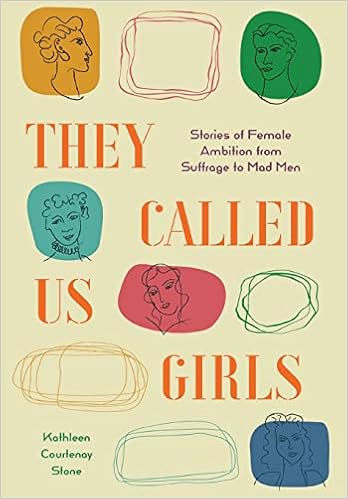 All in all, They Called Us Girls is a fascinating, inspiring, and well-written collection of biographies of seven exceptional women, bios told with personality and insight which bring these women and their triumphs to life. A grand celebration of women, released during March’s Women’s History Month, this is a book for men and women both to relish.
All in all, They Called Us Girls is a fascinating, inspiring, and well-written collection of biographies of seven exceptional women, bios told with personality and insight which bring these women and their triumphs to life. A grand celebration of women, released during March’s Women’s History Month, this is a book for men and women both to relish.
A review of The Tramp in British Literature, 1850-1950, by Luke Lewin Davies
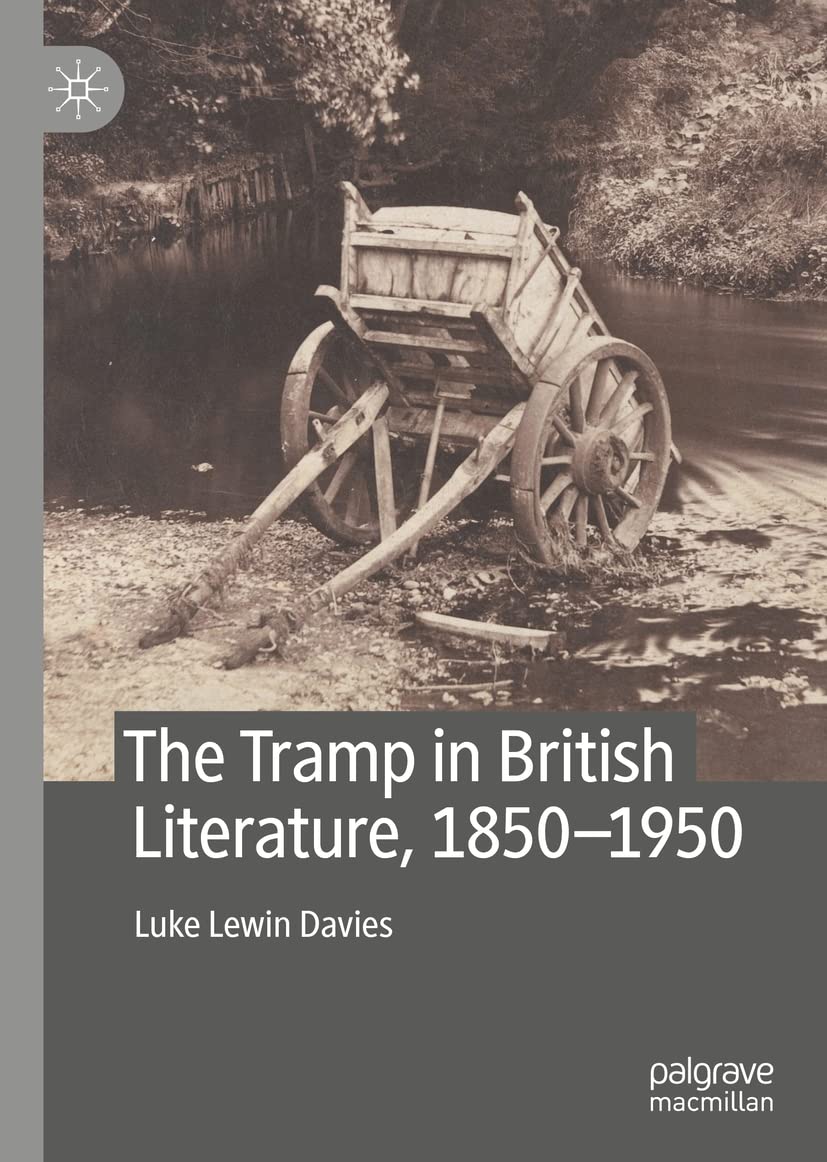 Having published a book on fifteen (American, British and Irish) tramp writers, although devoting an entire chapter to each, after reading Davies’ book I was left feeling that I had only scratched the surface of this fascinating and under researched phenomena (Davies identifies thirty-three British tramp memoirists alone). I will have to read this book more than once to fully appreciate its scope and content, including the countless delightful anecdotes from the subject’s of Davies curiosity.
Having published a book on fifteen (American, British and Irish) tramp writers, although devoting an entire chapter to each, after reading Davies’ book I was left feeling that I had only scratched the surface of this fascinating and under researched phenomena (Davies identifies thirty-three British tramp memoirists alone). I will have to read this book more than once to fully appreciate its scope and content, including the countless delightful anecdotes from the subject’s of Davies curiosity.
A review of This Dark Country: Women Artists, Still Life and Intimacy in Early C20 by Rebecca Birrell
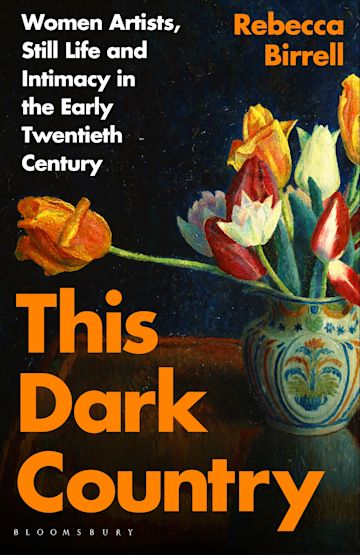 I adore this book, particularly as, growing up with a very creative single mother, I have intimate memories of spending one weekend where she, my brother and I painted all the bath panels, doors and cupboards of one of our houses with mermaids, nudes and still-lifes, inspired by the Charleston Homestead. I was enthralled from a young age with the worlds these femme artists created, their dreaminess and boldness to go against the grain of strict class, sexuality and gender expectations.
I adore this book, particularly as, growing up with a very creative single mother, I have intimate memories of spending one weekend where she, my brother and I painted all the bath panels, doors and cupboards of one of our houses with mermaids, nudes and still-lifes, inspired by the Charleston Homestead. I was enthralled from a young age with the worlds these femme artists created, their dreaminess and boldness to go against the grain of strict class, sexuality and gender expectations.
A review of Free Rose Light by Mary O’Connor
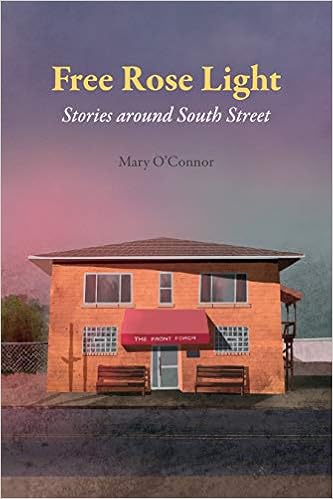 Mary O’Connor may have made her career as an architect, but her debut book shows her to be one heck of a writer. Her prose is tight, well-paced, and often exquisite. She balances fact and emotion with perfect precision, using a blend of memoir, reportage, biography, and social history to make Free Rose Light a rich and creative book that is both about its subject and transcendent.
Mary O’Connor may have made her career as an architect, but her debut book shows her to be one heck of a writer. Her prose is tight, well-paced, and often exquisite. She balances fact and emotion with perfect precision, using a blend of memoir, reportage, biography, and social history to make Free Rose Light a rich and creative book that is both about its subject and transcendent.
A review of Avoid the Day: A New Nonfiction in Two Movements by Jay Kirk
 Slivers of Kirk’s sometimes funny, sometimes traumatic personal history overlap and complement and reflect one another throughout the book. He spends a good part of the book searching in Transylvania for a lost manuscript, purportedly the work of none other than the great Béla Bartók, and spends another large chunk of it organizing strange activities on the deck of a cruise ship navigating some of the world’s remotest waters. Interwoven with these threads are passages in which Kirk frets over his seriously ill father, who, in one video call, strikes him as looking, in Kirk’s words, about a million years old.
Slivers of Kirk’s sometimes funny, sometimes traumatic personal history overlap and complement and reflect one another throughout the book. He spends a good part of the book searching in Transylvania for a lost manuscript, purportedly the work of none other than the great Béla Bartók, and spends another large chunk of it organizing strange activities on the deck of a cruise ship navigating some of the world’s remotest waters. Interwoven with these threads are passages in which Kirk frets over his seriously ill father, who, in one video call, strikes him as looking, in Kirk’s words, about a million years old.
A review of Square Haunting by Francesca Wade
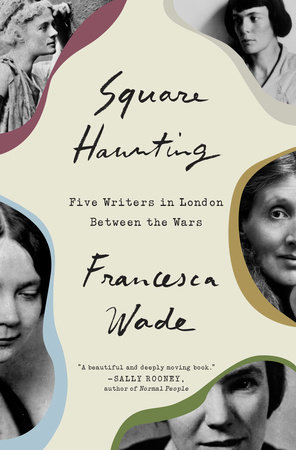
A review of Be Sincere Even When You don’t Mean It: The Memoirs of Jimmy Sizemore by Jim Flynn
 Flynn’s attention to detail in describing Sizemore’s various meetings and situations is what makes the story so believable and hilarious. Always the gentleman (“I’d learned through osmosis from my father that you always compliment somebody before you turn them down”), he gets what he wants with a smile. It’s a lesson in how to conduct yourself in the most difficult situations with the most persuasive people. There are very few revered institutions and American ideals that are left unscathed by Flynn, and rightfully so.
Flynn’s attention to detail in describing Sizemore’s various meetings and situations is what makes the story so believable and hilarious. Always the gentleman (“I’d learned through osmosis from my father that you always compliment somebody before you turn them down”), he gets what he wants with a smile. It’s a lesson in how to conduct yourself in the most difficult situations with the most persuasive people. There are very few revered institutions and American ideals that are left unscathed by Flynn, and rightfully so.
A review of Imperfect by Lee Kofman
 I’d be lying if I said I didn’t spend time Googling these people, or that I wasn’t fascinated by the whole notion of what constitutes beauty – and the way in which it’s judged. Kofman doesn’t pretend to have an answer—Imperfect is not a didactic book, and nor does it present a thesis that beauty is more than ‘skin deep’ and that judgement in any form is bad–we cannot help gazing at the beautiful or indeed the shocking. What the book does show however, is that these are complex and important questions to raise and that familiarity and reflectiveness are a means to better understanding who we are.
I’d be lying if I said I didn’t spend time Googling these people, or that I wasn’t fascinated by the whole notion of what constitutes beauty – and the way in which it’s judged. Kofman doesn’t pretend to have an answer—Imperfect is not a didactic book, and nor does it present a thesis that beauty is more than ‘skin deep’ and that judgement in any form is bad–we cannot help gazing at the beautiful or indeed the shocking. What the book does show however, is that these are complex and important questions to raise and that familiarity and reflectiveness are a means to better understanding who we are.
A review of Virginia Woolf and the Women who Shaped her World by Gillian Gill
Gill’s book is a tour de force in bringing together information about Virginia Woolf’s Pattle ancestors and the Thackeray connection; in showing the damaging patriarchal milieu out of which she fought her way, and in highlighting her use of autobiographical material in her novels.